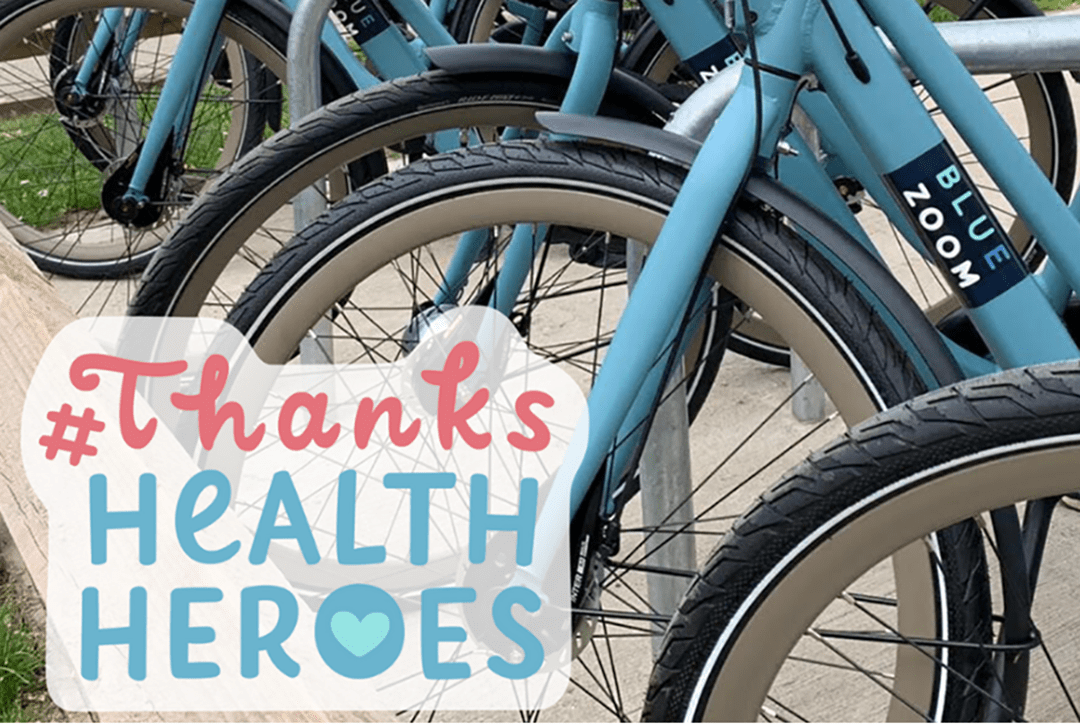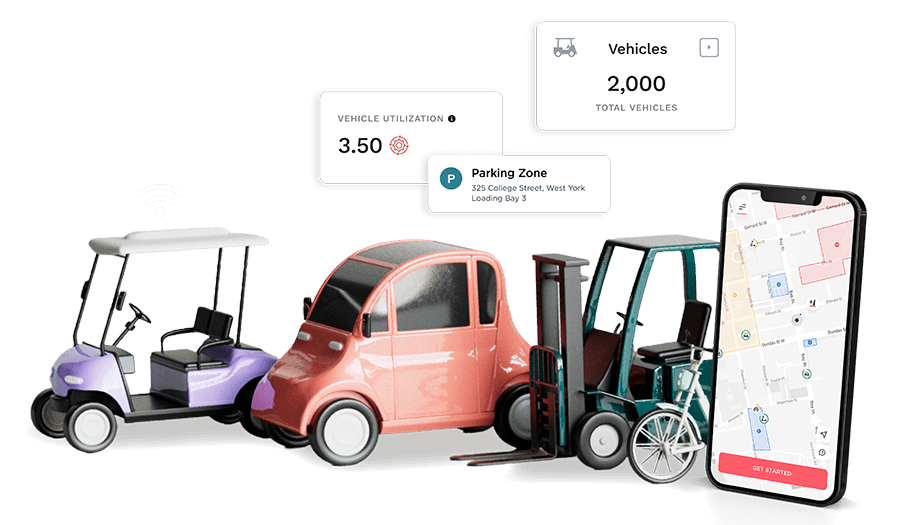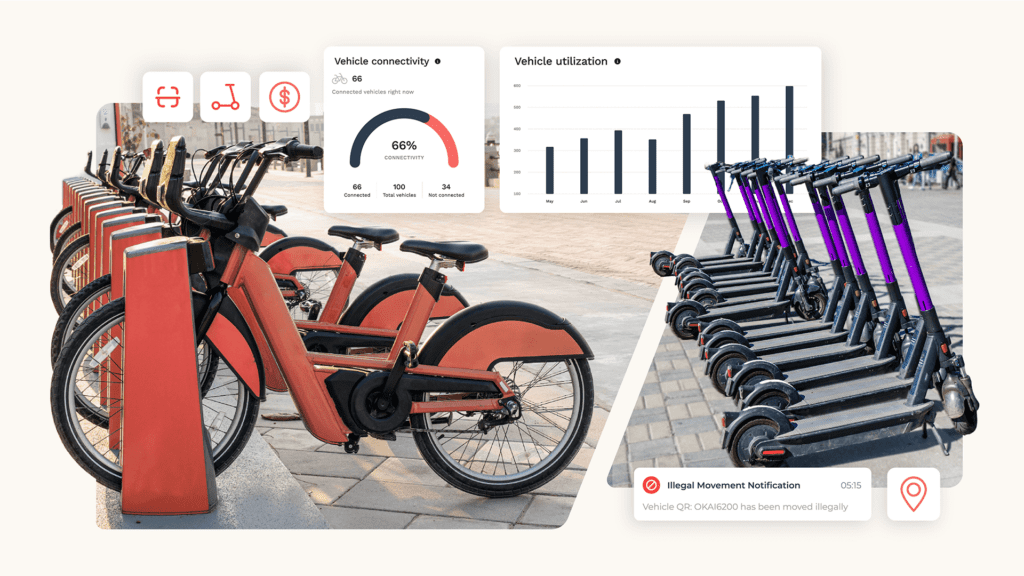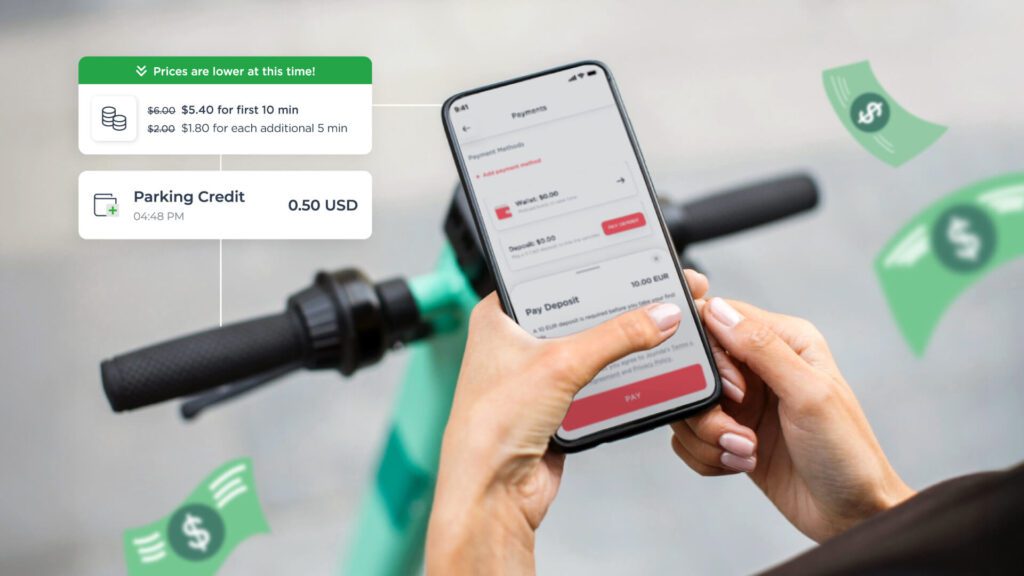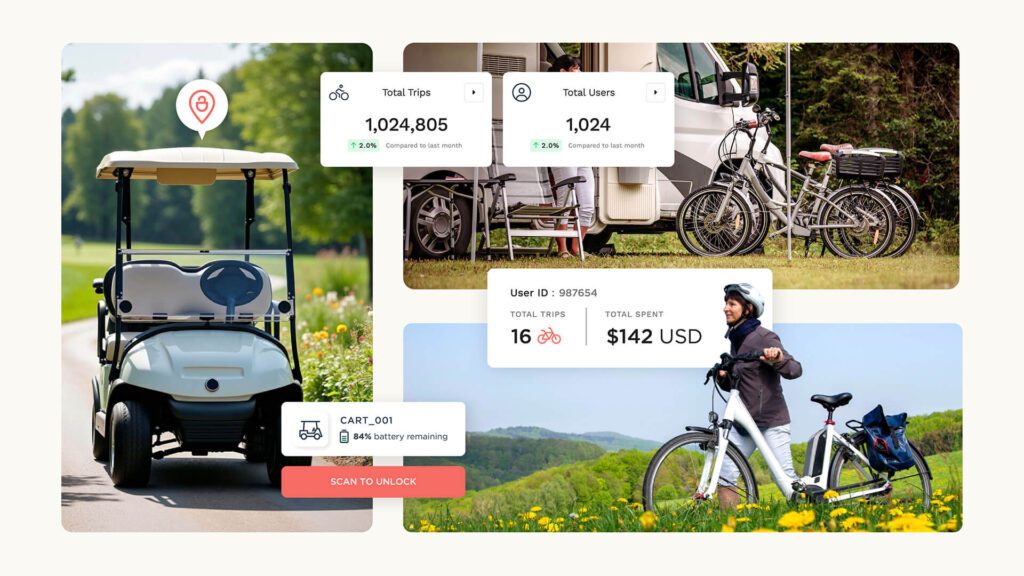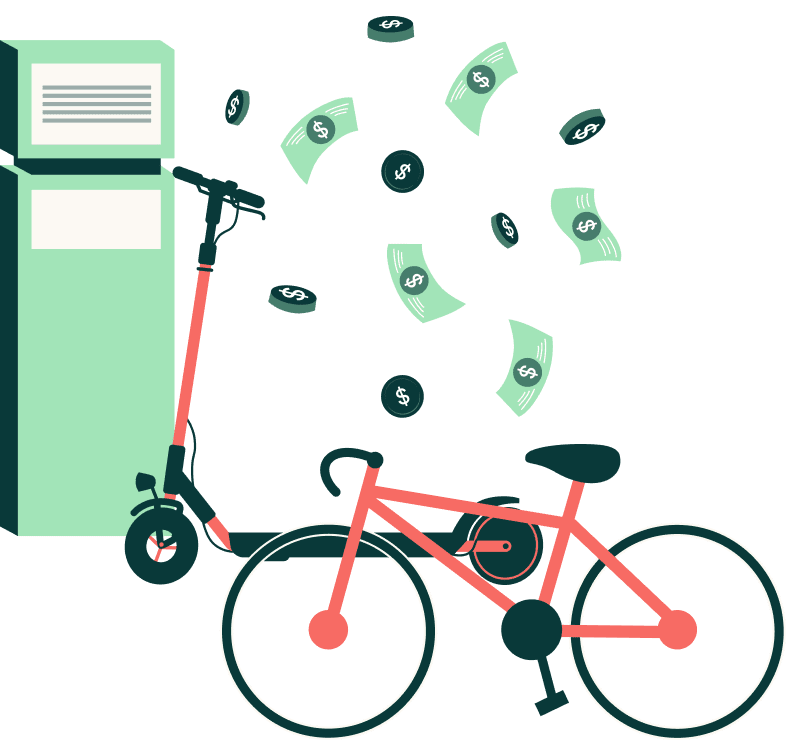It’s become increasingly apparent how crucial bikes and scooters can be when it comes to providing essential deliveries and safe transportation during the global coronavirus crisis, and hospitals have taken note. For healthcare workers worldwide, their place of work is riddled with risk—mobility companies want to make sure their commute isn’t, too.
In London, for example, bike-share operator Blue Zoom recently introduced free rides to all National Health Service (NHS) workers. Similar to a number of fellow Joyride-powered micromobility operators currently using their vehicles to provide free travel to front-line workers, Blue Zoom is allowing healthcare professionals to rent a bike in order to commute to and from work, or to travel from one hospital to another at no charge—and for multiple days at a time.
Of course, one good deed leads to another, and now a growing number of hospitals are contracting Blue Zoom to provide fleets of bikes on their premises.
“Our initiative started with six bikes situated outside St George’s Hospital in London, which NHS employees can rent for free and for however long they’d like,” says Blue Zoom CEO Joe Lewin. His company collaborated with the hospital to email 1,400 employees, who are welcome to download Blue Zoom’s user app to receive a six-digit access code (once they provide an image of their NHS identification).
“The response has been extremely popular. In an unprecedented climate like this, bikes are being relied upon more than ever for safe transit,” Lewin says. “These people still have to go to work, and they shouldn’t face heightened risks on their way there by taking public transportation.”
To help further mitigate the risk of spreading the virus, Blue Zoom will introduce a self-cleaning sanitizing system on the handlebars of its mechanical bikes, beginning next week. Looking further ahead, the bike-share company will be entering into direct contracts with hospitals in order to provide more free rentals to NHS workers.
“We’re seeing a demand from hospitals for this system. We wanted to do our part and use our fleet to provide relief in any way we can,” he says. Lewin is hopeful that by demonstrating the power of bikes and scooters now, people will continue to opt for micomobility vehicles instead of cars or public transportation once things begin to normalize in a post-coronavirus world. To that end, Lewin anticipates his fleet size will grow to 2,000 vehicles over the next 24 months (with a mix of both mechanical and electric bikes).
“Everyone will have to go back to work eventually,” he says. “Working from home is not sustainable. We’re helping to show that the bike-sharing system is.”

